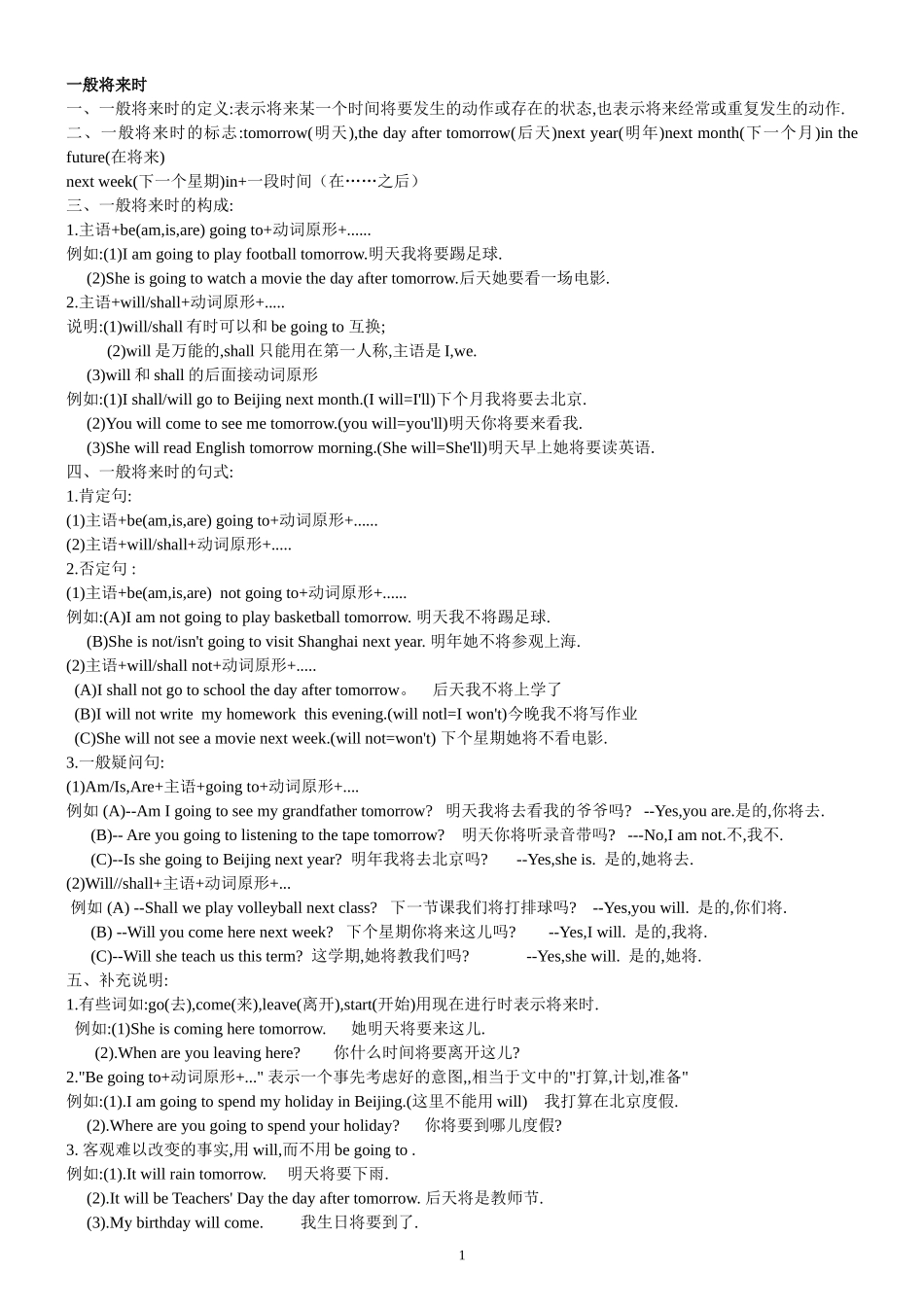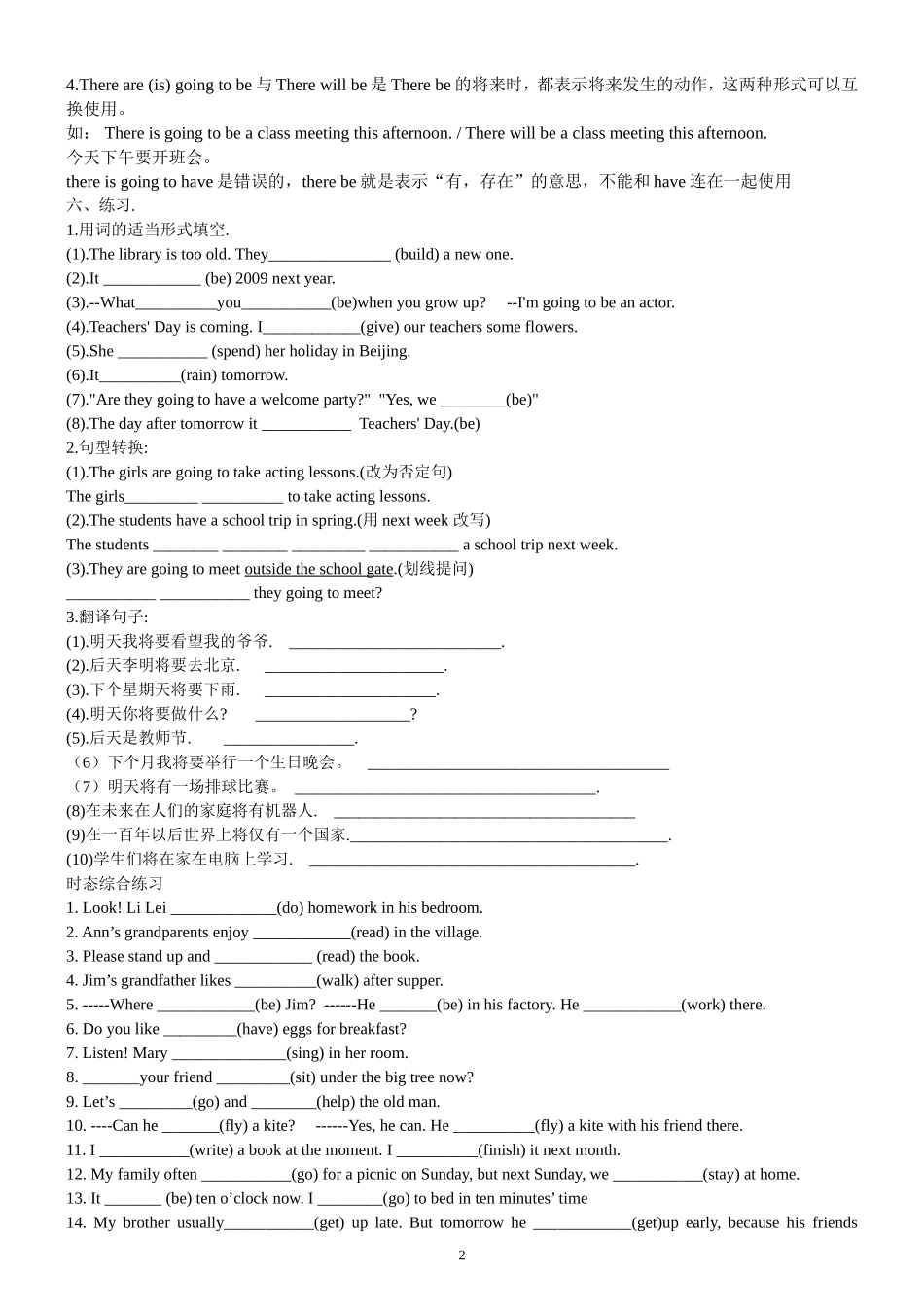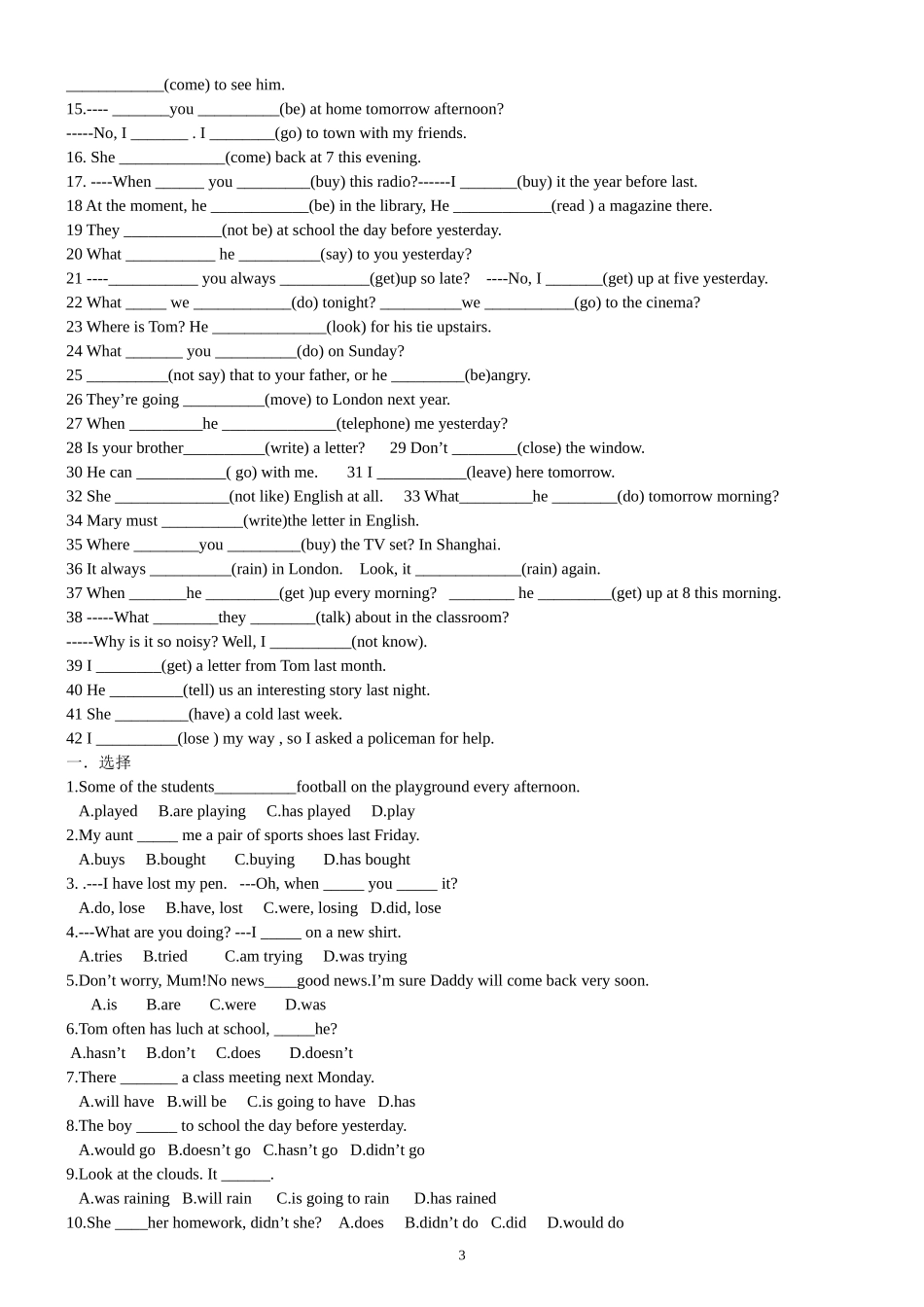一般将来时一、一般将来时的定义:表示将来某一个时间将要发生的动作或存在的状态,也表示将来经常或重复发生的动作.二、一般将来时的标志:tomorrow(明天),the day after tomorrow(后天)next year(明年)next month(下一个月)in the future(在将来)next week(下一个星期)in+一段时间(在……之后)三、一般将来时的构成:1.主语+be(am,is,are) going to+动词原形+......例如:(1)I am going to play football tomorrow.明天我将要踢足球. (2)She is going to watch a movie the day after tomorrow.后天她要看一场电影.2.主语+will/shall+动词原形+..... 说明:(1)will/shall 有时可以和 be going to 互换;(2)will 是万能的,shall 只能用在第一人称,主语是 I,we. (3)will 和 shall 的后面接动词原形例如:(1)I shall/will go to Beijing next month.(I will=I'll)下个月我将要去北京. (2)You will come to see me tomorrow.(you will=you'll)明天你将要来看我. (3)She will read English tomorrow morning.(She will=She'll)明天早上她将要读英语.四、一般将来时的句式:1.肯定句:(1)主语+be(am,is,are) going to+动词原形+......(2)主语+will/shall+动词原形+..... 2.否定句 :(1)主语+be(am,is,are) not going to+动词原形+......例如:(A)I am not going to play basketball tomorrow. 明天我不将踢足球. (B)She is not/isn't going to visit Shanghai next year. 明年她不将参观上海.(2)主语+will/shall not+动词原形+..... (A)I shall not go to school the day after tomorrow。 后天我不将上学了 (B)I will not write my homework this evening.(will notl=I won't)今晚我不将写作业 (C)She will not see a movie next week.(will not=won't) 下个星期她将不看电影.3.一般疑问句:(1)Am/Is,Are+主语+going to+动词原形+....例如 (A)--Am I going to see my grandfather tomorrow? 明天我将去看我的爷爷吗? --Yes,you are.是的,你将去. (B)-- Are you going to listening to the tape tomorrow? 明天你将听录音带吗? ---No,I am not.不,我不. (C)--Is she going to Beijing next year? 明年我将去北京吗? --Yes,she is. 是的,她将去.(2)Will//shall+主语+动词原形+... 例如 (A) --Sh...


